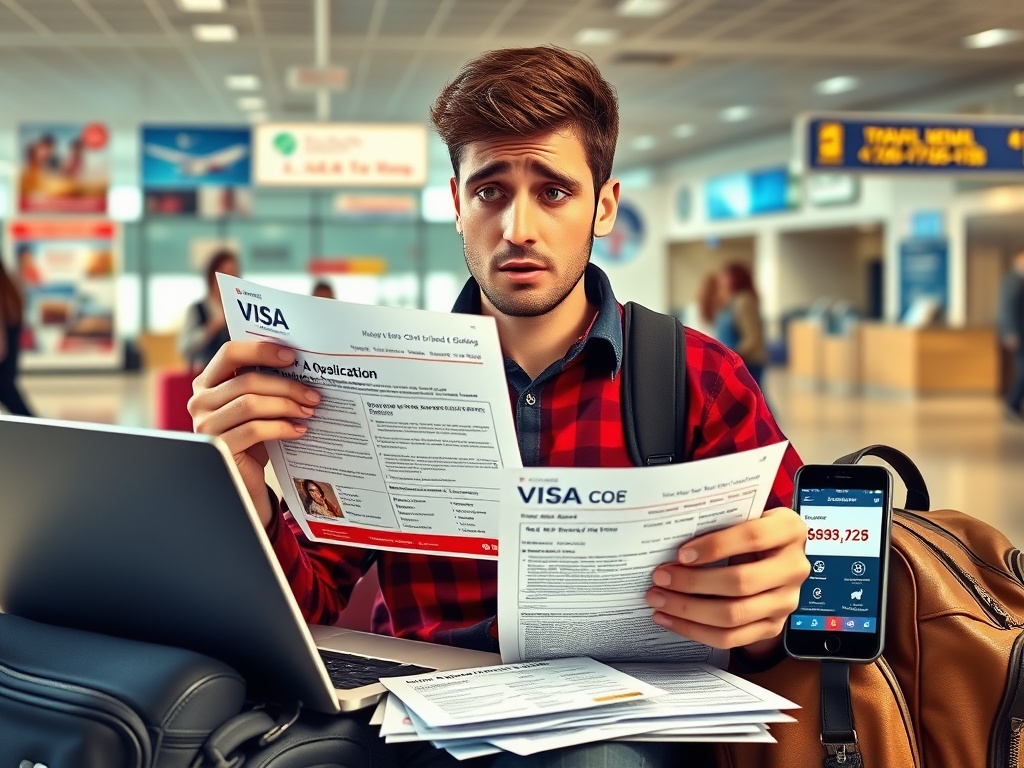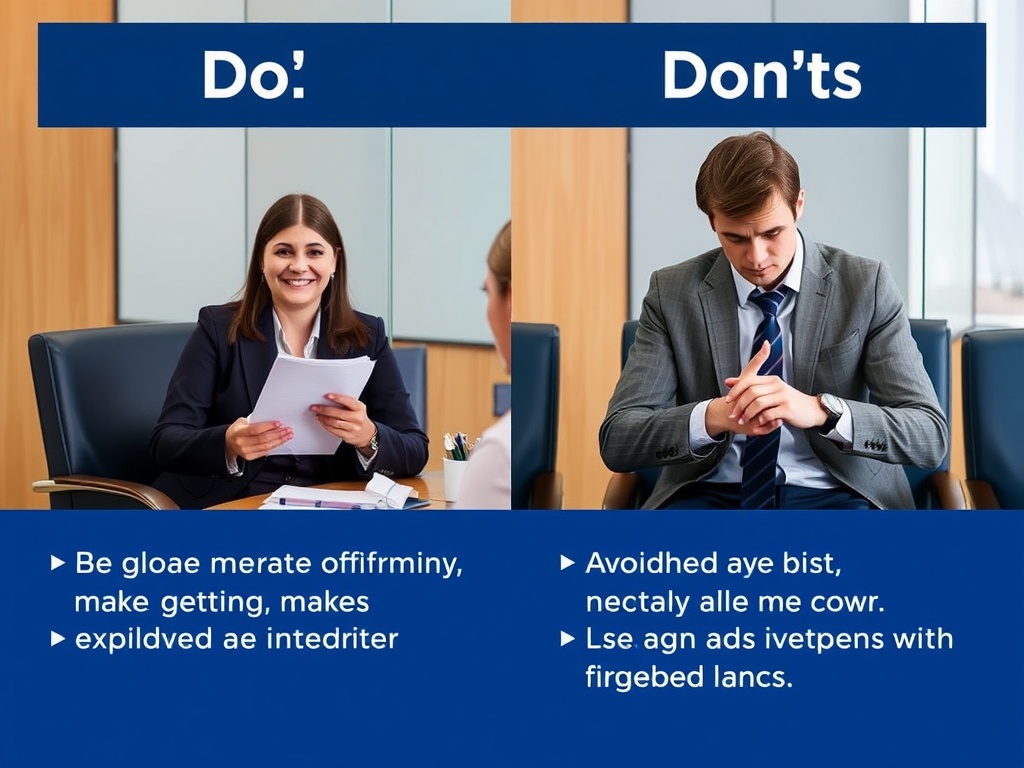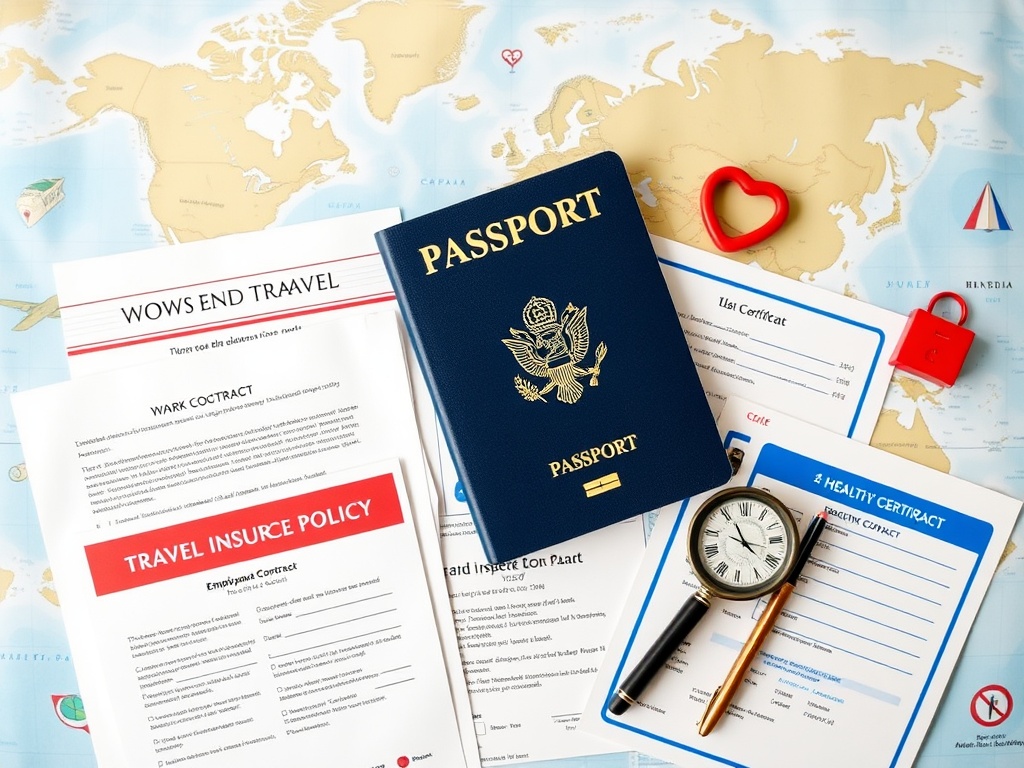Navigating Visa Application Denials: Strategies for a Successful Reapplication
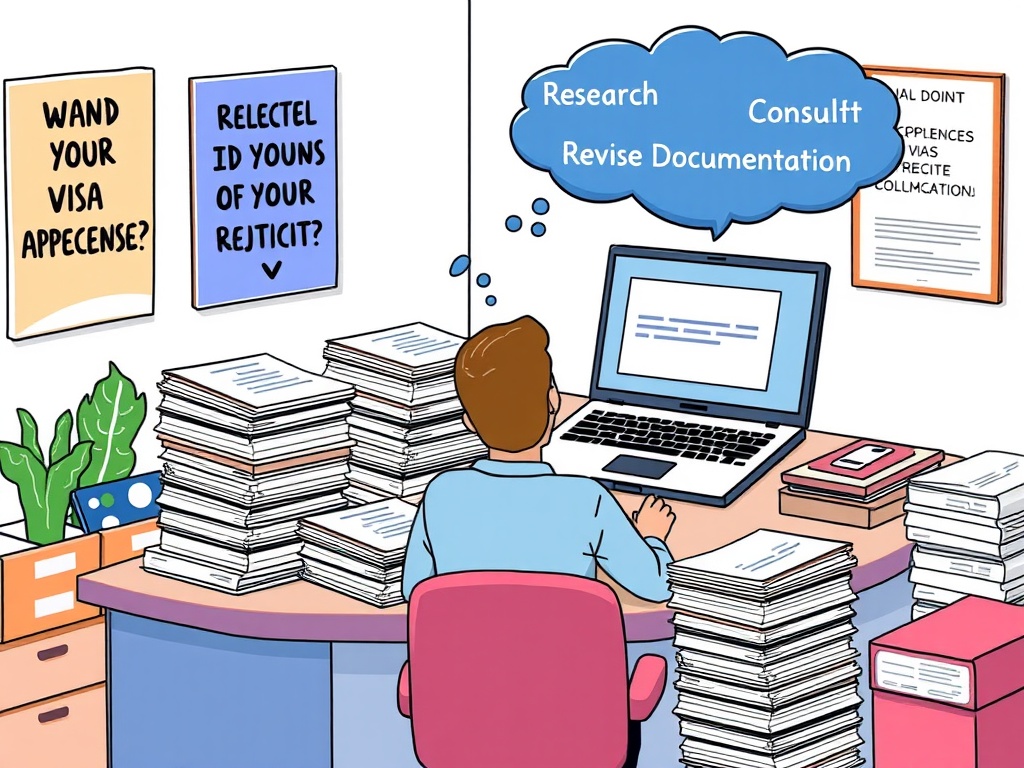
Visa application denials can be disheartening, but they often stem from specific issues that can be addressed. It’s essential to understand why your application was denied in the first place. Common reasons include insufficient documentation, failure to demonstrate ties to your home country, or inconsistencies in the information provided. By identifying the root cause of the denial, you can take targeted steps to improve your chances of success upon reapplication.
Once you have pinpointed the reasons for your previous denial, it’s time to prepare a robust reapplication. This process involves gathering additional documentation, revising your application, and providing clear explanations for any previous discrepancies. Below is a list of key steps to enhance your reapplication:
- Review the Denial Letter: Understand the specific reasons for denial.
- Gather Additional Evidence: Collect documents that support your case.
- Consult with an Immigration Lawyer: Seek expert advice to strengthen your application.
- Address Past Issues: Clearly explain how you have resolved any previous concerns.
- Practice for Interviews: Be prepared to answer questions confidently if required.
When you feel ready to submit your reapplication, it’s crucial to follow best practices to ensure everything is in order. Pay close attention to the application guidelines and ensure that all required documents are included. Additionally, consider the timing of your reapplication; submitting too soon may not allow for sufficient changes or new evidence to be gathered. Be thorough and organized in your submission to make a positive impression on the reviewing authorities.
Overcoming Language Barriers: Tips for Effective Communication with Visa Authorities
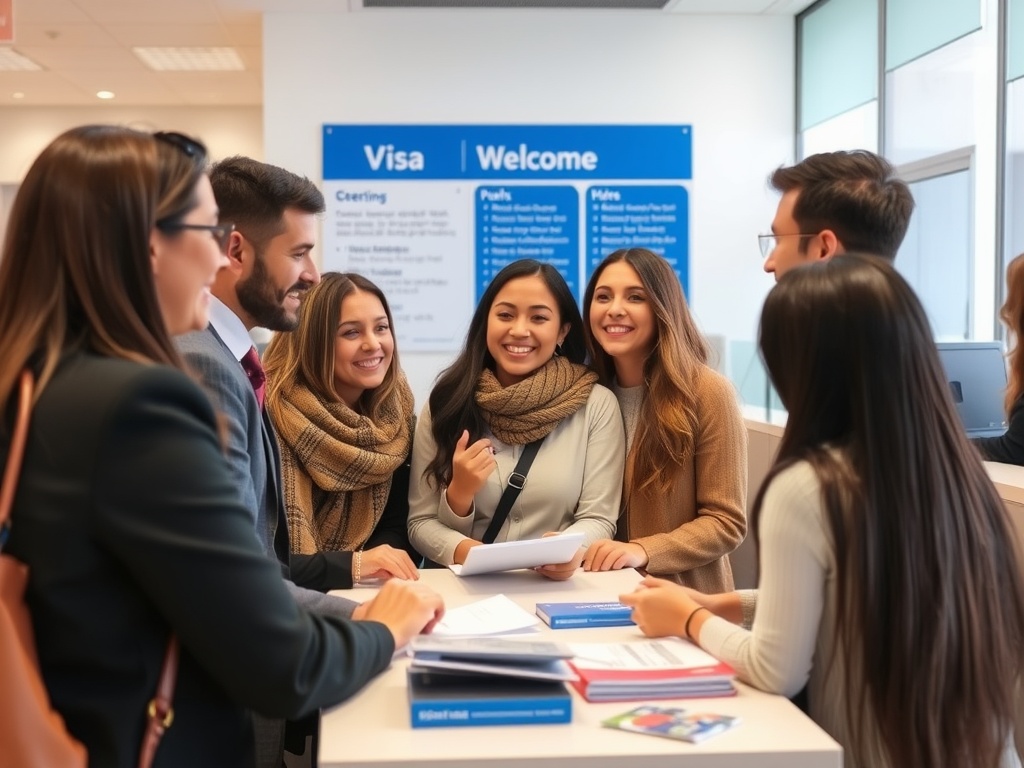
When navigating the complex world of visa applications, communication plays a pivotal role in ensuring a smooth process. One of the most significant obstacles applicants face is the language barrier, which can lead to misunderstandings and misinterpretations of vital information. To enhance your chances of a successful visa application, it is crucial to employ effective strategies to overcome these barriers. Here are some insightful approaches to ensure clear and concise communication with visa authorities.
Utilizing professional translation services can significantly improve the clarity of your application. Accurate translations of documents not only minimize the risk of errors but also demonstrate your commitment to providing the necessary information. Investing in certified translators who are familiar with visa terminology can enhance your application’s credibility. Furthermore, consider accompanying your translated documents with a summary in the primary language of the visa authority, as this can facilitate a better understanding of your intent.
Connecting with local community organizations that assist with immigration issues can be invaluable. These organizations often have resources, including bilingual staff, who can aid in the preparation of your application and ensure that all questions are answered accurately. Leveraging such resources allows you to gain insights into common pitfalls and successful strategies used by others in similar situations. Additionally, they may offer workshops or information sessions tailored to help applicants navigate the visa process effectively.
In today’s digital age, technology offers numerous tools to bridge language gaps. Video conferencing apps equipped with translation features enable real-time communication with visa authorities. By using visual aids and engaging in video calls, you can clarify any doubts and receive immediate feedback. Such platforms foster a more personal connection and can help convey your sincerity and commitment to compliance with immigration requirements. Remember, effective communication is not just about language; it’s about building rapport and trust with the authorities.
Understanding Visa Expiration: How to Renew Your Visa Without Hassle
Visa expiration can be a daunting issue for many travelers and expatriates. Knowing the ins and outs of the renewal process is essential to avoid any legal complications or interruptions in your stay. This section will delve into the crucial steps to ensure that your visa renewal goes smoothly, allowing you to focus on enjoying your time abroad.
One of the most important aspects of renewing your visa is understanding the specific timeline involved. Many visa types have a designated period within which you must apply for renewal. Failing to initiate the process in a timely manner can lead to complications, including overstaying your visa. To avoid such scenarios, consider the following:
- Check Your Visa Expiry Date: Keep a close eye on when your visa is set to expire and mark it on your calendar.
- Start the Renewal Process Early: Aim to begin the renewal process at least 60 days before your visa expiration.
- Understand Processing Times: Different visa categories have varying processing times. Research this information ahead of time.
Gathering the necessary documents for your visa renewal is critical. Incomplete applications are a common reason for delays or denials. Below is a comprehensive list of documents that you should consider preparing:
| Document Type | Description |
|---|---|
| Passport | Valid passport with at least six months of validity beyond the intended stay. |
| Application Form | Completed visa renewal application form specific to your visa type. |
| Photos | Recent passport-sized photographs that meet official requirements. |
| Proof of Residency | Documents proving your residence in the host country, like utility bills or lease agreements. |
| Financial Evidence | Bank statements or employment letters to show your financial stability. |
While many individuals can navigate the renewal process on their own, there are instances when professional assistance may be warranted. If you encounter any of the following situations, consider consulting with an immigration attorney or a visa specialist:
- Your application has been denied before.
- You have changed your circumstances significantly (e.g., job, marital status).
- You are unsure about the requirements or process for your specific visa type.
In conclusion, being proactive and well-informed about the visa renewal process is crucial for avoiding unnecessary stress. By planning ahead, gathering the right documentation, and seeking professional help when needed, you can ensure a hassle-free renewal experience.
Document Dilemmas: Essential Tips for Organizing Your Visa Application Files
Applying for a visa can often feel overwhelming, especially when it comes to managing the myriad of documents required. A well-organized application file not only enhances your chances of approval but also reduces stress during the submission process. Establishing a methodical approach to document organization can be your secret weapon in navigating the complexities of visa applications.
One of the first steps towards efficient document management is creating a structured filing system. Begin by categorizing your documents into clear sections, such as personal identification, financial records, and supporting evidence. Utilize physical folders or digital file management systems to keep these categories distinct, ensuring that you can access each section swiftly. Labeling folders with specific titles will further enhance your ability to locate documents quickly, saving you precious time when preparing your application.
Checklists are invaluable tools when it comes to ensuring that all required documents are included in your application. Start by compiling a comprehensive list of the documents needed for your specific visa type. As you gather each item, mark it off your checklist to confirm its inclusion. This not only helps prevent last-minute scrambles for missing paperwork but also instills a sense of confidence as you approach the submission deadline. Additionally, consider keeping copies of all submitted documents organized in a separate folder; this can be immensely helpful if you need to reference them during follow-up communications with visa authorities.
In today’s digital landscape, leveraging technology can dramatically streamline your document organization. Using cloud storage solutions allows you to access your files from anywhere, ensuring that you are always prepared, whether at home or abroad. Furthermore, consider using document scanning apps to create digital copies of your physical documents. This not only keeps your files safe from loss or damage but also enables you to share them easily with advisors or legal representatives. By incorporating these digital tools, you can enhance the overall efficiency of your application process.
Addressing Common Visa Interview Mistakes: A Guide to Impressing Consular Officers
For many applicants, the visa interview can be a nerve-wracking experience, often leading to avoidable mistakes. These common blunders can result in unfavorable outcomes, leaving candidates feeling frustrated and disheartened. To navigate this critical phase successfully, understanding the nuances of what consular officers are looking for and how to present oneself effectively is pivotal. This guide aims to arm you with the necessary awareness to avoid pitfalls and make a lasting impression.
Before stepping into the interview room, it is crucial to appreciate the role of the consular officer. They are tasked with assessing the credibility and eligibility of applicants within a limited timeframe. Their decisions are influenced by the clarity of your intentions, your ties to your home country, and the overall coherence of your application. Therefore, presenting yourself with confidence and clarity is essential. Inconsistencies or vague responses can raise red flags, which can ultimately jeopardize your chances of obtaining a visa.
Communication is paramount in a visa interview, and it’s not just about answering questions; it’s about how you convey your story. Start by clearly articulating your purpose for travel. Provide concise, relevant details that align with the information on your application. Practice discussing your plans, financial capacity, and ties to your home country to ensure you can express your intentions smoothly. Furthermore, maintaining eye contact and a calm demeanor can significantly enhance your credibility. Remember, body language speaks volumes, so a confident posture can positively influence the officer’s perception.
Additionally, be prepared for follow-up questions that may probe deeper into your application details. This is where applicants often falter. Anticipate questions regarding your travel history, employment status, and family connections, and prepare thoughtful, honest responses. Misleading information or hesitation can create doubt, leading to a denial. Instead, embrace transparency, as it builds trust and demonstrates your genuine intent.
Your application is not just a collection of documents; it tells a story about who you are and why you seek to travel. Ensure that your application aligns with your interview responses. Any discrepancies can lead to confusion and suspicion. Review your application meticulously before the interview, and be ready to address any potential discrepancies or concerns that might arise. This preparation shows diligence and respect for the process.
Finally, consider the importance of being genuine. Consular officers are adept at detecting disingenuous behaviors or rehearsed responses. Approach the interview with authenticity; let your personality shine through while maintaining professionalism. A sincere expression of your intentions can resonate positively, making you a memorable candidate.
Dealing with Delays: How to Expedite Your Visa Processing Time
Visa processing delays can be incredibly frustrating, especially when you have travel plans or commitments that depend on timely approval. Understanding the factors that contribute to these delays and taking proactive measures can help smooth the path to obtaining your visa. Here’s how you can tackle these delays head-on and expedite your visa processing time.
Before diving into solutions, it’s essential to recognize what might be causing the hold-up in your visa application. Processing times can fluctuate due to a variety of reasons, including:
- High application volumes during peak seasons.
- Inadequate or missing documentation.
- In-depth security checks or background investigations.
- Changes in immigration policies or procedures.
By identifying these potential issues, you can tailor your approach to address them effectively.
Taking the right steps can significantly reduce your wait time. Below is a list of actions you can implement to help expedite your visa application:
- Submit a Complete Application: Ensure that every required document is included. Incomplete applications are often delayed while additional information is requested.
- Follow Up Regularly: Stay informed about your application status by contacting the relevant authorities. Regular follow-ups can sometimes prompt quicker action on your case.
- Utilize Expedited Processing Options: Many visa authorities offer expedited processing for an additional fee. If your situation allows, consider this option for faster approval.
- Seek Professional Help: Engaging an immigration lawyer or consultant can provide you with expert guidance, ensuring that your application is accurate and complete.
By employing these strategies, you can take charge of your visa application process and reduce the likelihood of unnecessary delays. Remember, being proactive and well-prepared is key to a successful travel experience.
Visa Scams and Fraud: Protecting Yourself from Common Pitfalls
In the world of visa applications, the rise of scams and fraudulent activities poses a significant threat to unsuspecting applicants. As the demand for visas increases, so does the number of individuals and organizations looking to exploit vulnerable people seeking legitimate travel opportunities. Recognizing the common pitfalls associated with visa scams can empower you to avoid falling victim and ensure your journey remains on the right path.
When navigating the visa application process, it’s crucial to remain vigilant and aware of the signs that may indicate a scam. One of the most telling red flags is an offer that seems too good to be true, such as guaranteed approvals or shortcuts that promise to bypass standard procedures. Legitimate visa authorities operate within strict guidelines and cannot guarantee outcomes. Additionally, be cautious of unsolicited communications from individuals claiming to be affiliated with immigration services, especially if they request payment or personal information upfront.
Protecting your personal data is paramount when dealing with visa applications. Always conduct thorough research before providing sensitive information. Ensure that any organization you engage with is officially recognized and has a solid reputation. Check for verified reviews and testimonials. A reputable service will not pressure you into making hasty decisions. Moreover, using secure payment methods can add an extra layer of protection against fraud. If you ever feel uncertain about a service, trust your instincts and seek advice from recognized authorities or legal professionals who specialize in immigration matters.
Ultimately, awareness and diligence can serve as your best defenses against visa scams. By familiarizing yourself with how legitimate visa processes operate and being skeptical of irregularities, you can navigate the complexities of visa applications with confidence. Remember, safeguarding your journey starts with protecting yourself from common pitfalls.
